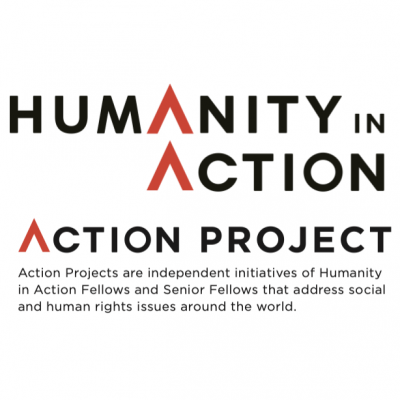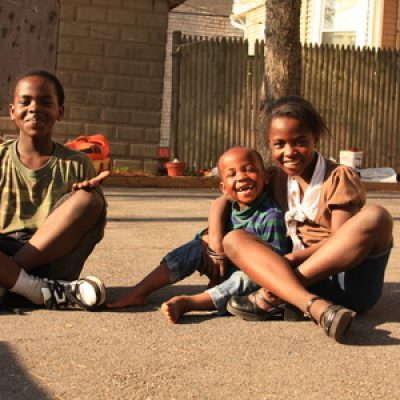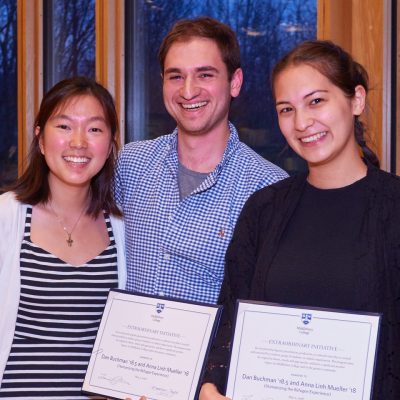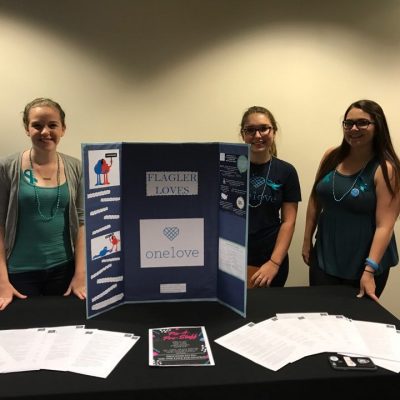Article
Violence against women occurs at all times and in all countries. However, the violence women face spikes significantly during and after crises, armed conflicts, and natural disasters. Senior Fellow Annie Gavin became aware of these unique challenges through intimate conversations with women at the Zaatari Refugee Camp for Syrians in Jordan as well as some of the United Nation camps for Palestinians in Jordan.
Annie was amazed and inspired by the strength and resilience of the women in these settings, who welcomed her into their homes and shared their stories with her. They recounted not only how they had survived crisis and armed conflict as women, but how they were surviving in refugee camps as women.
While Annie had been aware of the complex challenges faced by refugees, she had not viewed this issue through a gendered lens. Through the women’s stories and additional research, Annie became familiar with the gender-based violence that persists in refugee camps and the difficulties women face during resettlement, and she wanted to know more about how refugee organizations approached these challenges experienced by women.
Annie wanted to integrate the perspectives and stories of the women she had met into the larger approach to providing solutions for refugees, and draw more attention to the specific needs of women with experiences of flight and migration.
Annie discovered the perfect opportunity to highlight this issue when she learned that her college, Macalaster College, was organizing an International Roundtable event about pressing issues related to global migration, and that none of the panels was going to address gender. In response, Annie and her colleagues organized a panel that focused on the specific challenges faced by female refugees.
The interest was high, and participants included representatives from the American Refugee Committee, the International Rescue Committee, Women’s Initiative for Self Empowerment, and Together for Girls.
Through independent research and coursework material, Annie and her colleagues prepared for the topics to be covered by the panel. They decided to have the panelists examine the unique challenges faced by women in three separate but related scenarios: in conflict settings, in refugee settings, and during the resettlement process. Upon identifying these three focus areas, Annie and her colleagues identified engaging speakers from leading refugee and resettlement organizations to invite to participate in the panel. Annie and her colleagues then advertised the panel as part of the college’s International Roundtable event.
The hour-long panel was attended by 75 people who were extremely interested in learning more about the problem of violence against women in situations of displacement and how organizations work to address this problem. Following the path of female refugees from displacement to repatriation or resettlement in host communities or third countries, the panelists looked specifically at how organizations observe the concerns of women in a displacement setting.
Annie was amazed and inspired by the strength and resilience of the women in these settings, who welcomed her into their homes and shared their stories with her.
These concerns included guaranteeing separate wash/sanitation rooms for men and women, ensuring adequate lighting by restrooms, providing females in households with their family’s rations, and including women in the community decision-making. The expert panelists also addressed best practices for empowering women during resettlement. The panel concluded with an interactive question and answer session.
Annie learned that it can be difficult for the speakers to strictly adhere to time limitations, especially given the nature of various questions. As such, Annie recommends other event organizers to include that possibility as a factor when determining how long a particular session will be, and how much time the speakers will be told they have. This will ensure that enough time is remaining for the question and answer session at the end.




